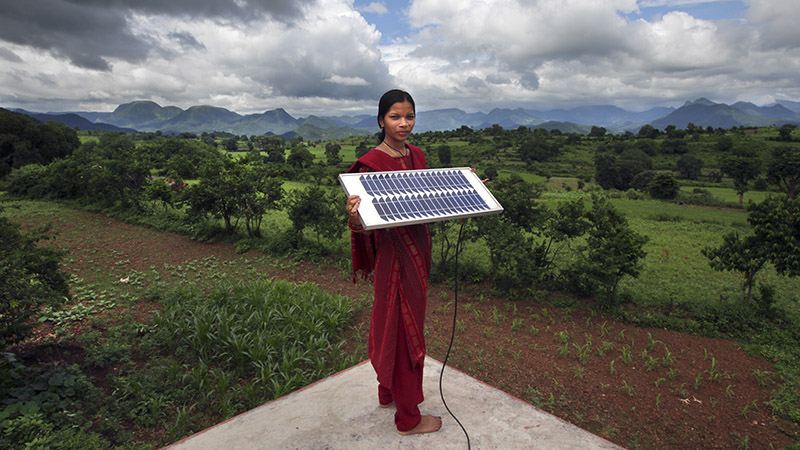The UN’s top energy official has urged Britain’s new government to remain “open and outward looking” and maintain its development budget commitments.
Rachel Kyte, chief executive of the UN’s Sustainable Energy for All (SE4All) initiative said the UK still had a critical global role to play despite a vote to leave the EU.
“Multilateralism is the cheapest most effective way to get things done – and we know that if people are not lifted up in their own economies there will be greater movements of people,” she said.
“It would be absurd to turn in on ourself and stop investing in the rest of the world and making that a safer, better place, because we will benefit.”
Kyte, a British national who until recently was head of climate change at the World Bank, was speaking to Climate Home at a business summit in London on 28 June.
Appointed yesterday, UK’s new prime minister Theresa May has so far offered little indication of her plans around the country’s climate change and development budgets.
May’s chief adviser Nick Timothy previously described the 2008 Climate Change Act governing emission cuts as a “unilateral and monstrous act of self-harm”, while new Trade secretary of state Liam Fox has suggested reallocating some of the aid budget to defence.
One of David Cameron’s last acts as prime minister was, reports influential Times columnist Tim Montgomerie, to plead for the retention of the 0.7% of national income aid target, worth around £12 billion a year.
@montie v right on the impact of #ukaid +UK leadership on 0.7% is much admired #Britainintheworld #softpower https://t.co/TxA2qV3AXP
— Nick Hurd (@NickHurdUK) July 14, 2016
Last September, the government committed to spending £5.8 billion of the overseas development aid budget on climate change, including at least £1.76 billion in 2020.
Since its launch in 2011, the UK has been a strong supporter of SE4All, which aims to deliver sustainable power to more than 1 billion people by the middle of next decade.
UK-backed projects include green mini-grids and a roll-out of community solar power initiatives across Africa – part of a wider a contribution welcomed by Kyte.
“We have to remain open and outward looking in development and environmental policy if we are to benefit at home and let the world benefit,” she said.
“There’s no turning our back on the way the world will develop… whatever the outcome and the politics our fate is sealed. One end of the boat can’t go up. Both ends of the boat have to go up.”
